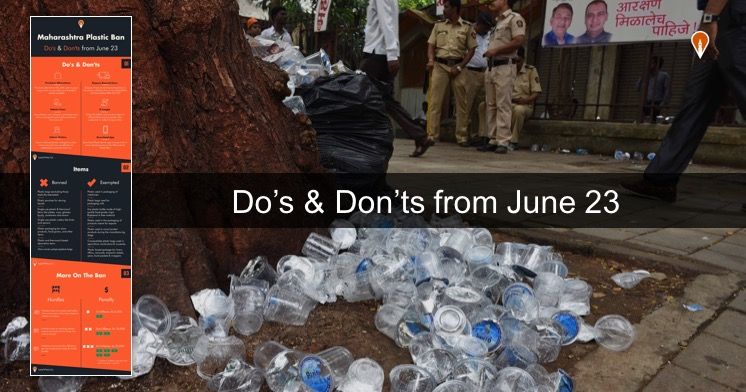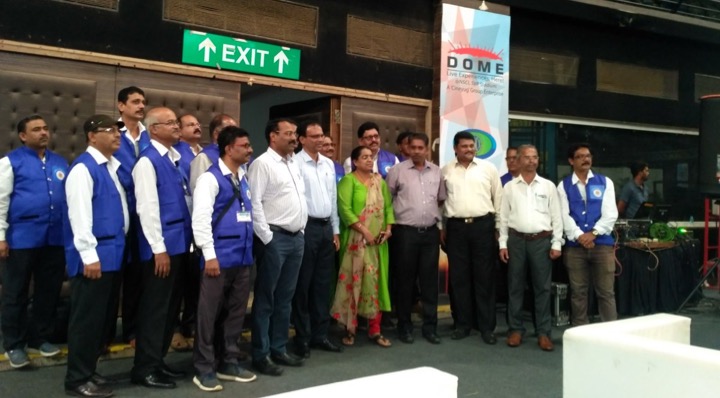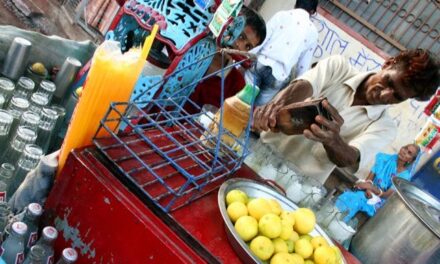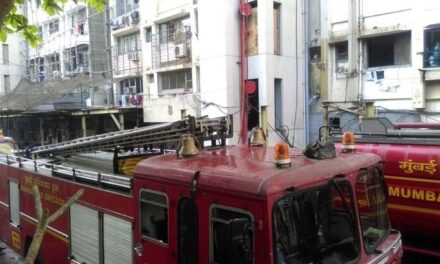Maharashtra Plastic Ban: Do’s and Don’ts from June 23


BMC will start enforcing the plastic ban from June 23
With the three-month grace period for enforcing the Maharashtra Plastic Ban coming to an end on June 23, the Brihanmumbai Municipal Corporation (BMC) is set to start taking stern action against violators.
Here’s a complete roundup of how citizens can adhere to the ban and avoid getting penalised by the BMC.
Do’s & Don’ts
# Dispose of any remaining banned items in the plastic collection bins before Saturday, when BMC starts levying penalties.
# In case of bulk plastic waste, call BMC’s toll-free helpline 1800222357 to schedule collection from your doorstep.
# Do not indulge in the manufacture, usage, transport, distribution, wholesale/retail sale or storage and import of banned items (complete list below).
# Purchase alternatives like cloth, jute or paper bags which are reusable, eco-friendly and readily available in most markets now.
# If caught violating the ban, check the ID card of the official levying the fine and authorisation letter issued by the BMC before making payment.
# Once the payment is made, remember to collect the receipt of the same.
# Do not attempt to bribe any civic official to settle the matter. Doing so may invite further action.
# In case of doubt, cross-check the official’s details with the list uploaded on the civic body’s website.
# Inform out of state relatives or friends visiting Mumbai about the ban as civic officials are authorised to penalise anyone violating the ban in the city.
# Download the state government’s ‘Plastic Bandi’ app to keep track of newer developments on the Maharashtra Plastic Ban.

Maharashtra Plastic Ban Inforgraphic
Must Know
No Rs 200 penalty:
The BMC’s proposal to bring down the fine to Rs 200 for first-time individual offenders was shot down by law committee on Wednesday. As a result, the penalty still stands at Rs 5,000.
Different fine for individuals, vendors:
The civic body also proposed levying different fines to citizens, local vendors, mall and hotels ranging from Rs 200 to Rs 1,000. However, the proposal has not been approved by the law committee and is therefore not applicable at the moment.
250 personnel to enforce ban:
Around 250 personnel from the BMC’s markets department, the shops and establishments’ department and license department will be responsible for enforcing the ban in the city along with those empowered under section 12 of Maharashtra Non-Biodegradable Garbage Act, 2006.
Officials given authorisation letter by BMC:
Each official responsible for enforcing the ban has been given a jacket stating they are a part of the ‘plastic ban squad’. The officials have also been handed a letter from the BMC stating they are authorised to collect fines from defaulters.
Officials to note details like Aadhaar, PAN:
At the time of levying the fine, BMC officials will note the name of offender, place of offence and type of offence. Details of Aadhaar or PAN card may also be noted to keep track of repeat offenders. In case of businesses, license number may be noted.
Buy-back price to be printed on bottles:
Maharashtra Pollution Control Board has mandated that manufacturers print the recycling and buy-back price prominently on PET and PETE bottles to ensure transparency.
BMC to hold exhibition on plastic alternatives:
The BMC will hold a three-day exhibition on alternatives for plastic at the NSCI in Worli starting this Friday. It has roped in celebrities like Ajay Devgn and Kajol to increase awareness about the event and the ban.
Possible Hurdles
# In the absence of a cohesive buy-back system, vendors may not accept used bottles from customers.
# Vendors may also refrain from refunding the cost to customers if there is uncertainty over getting a refund from manufacturers.
# Bigger establishments like hotels and malls may face difficulties in disposing of plastic waste without the civic body’s aid.
# Limited access to recycling facilities may act as a hindrance even for those who are willing to comply with the notification.
# Unlike manufacturers, citizens and vendors don’t have the means to highlight shortcomings or go for grievance redressal.
# Violators may try to bribe officials to get out of paying the steep Rs 5,000 penalty.

BMC officials in their ‘plastic ban squad’ uniforms (Picture Courtesy: Chetna Yerunkar/Twitter)
Other Developments
Over 140 tonnes of plastic collected:
So far, the BMC has collected over 140 tonnes of plastic from citizens who had called the toll free number (1800 222 357) for the collection of bulk plastic waste from their homes.
19 plastic manufacturers shut:
The Maharashtra Pollution Control Board (MPCB) has reportedly forced at least 19 large-scale plastic bag manufacturing units to shut in June. While manufacturers can store plastic items for next three months, their production or supply is totally prohibited.
Online shopping may become expensive:
Online shopping is set to become slightly expensive as e-commerce industry has reportedly started replacing plastic packaging with corrugated box particles and paper softeners, which are up to 70 percent more expensive. The additional cost will most likely be passed down to the consumer.
Railways to conduct own drive:
Railways will be conducting a drive in its premises next week to check if vendors have disposed of all plastic items. However, they will not be immediately fined amid lack of clarity over the buy-back scheme and limited disposal options.
Deadline for setting up buyback mechanism extended:
The deadline for plastic bottle manufacturers and milk dairies to set up a buyback mechanism has been extended until July 11 by the Environment Department.
Lack of clarity over plastic containers:
The Pollution Control Board is yet to confirm if containers used by restaurants and delivery kitchens are allowed. The containers are made from food-grade plastic and often reused at homes.
Manufacturers knock on court’s door:
Plastic manufacturers have filed a petition in the high court challenging the ban. The hearing on their petition has been kept on June 22.
Ban Basics
Who does the ban apply to?
The regulations under Maharashtra Plastic Ban are applicable to individuals, body of persons, government, NGOs, educational institutions, sports complex, clubs, cinema halls, malls, industrial units, commercial institutions, pilgrimage organisers, religious places, hotels, shopkeepers, vendors, small traders, manufacturers, wholesalers, retailers, businessmen, hawkers, salesmen, transporters, producers, stalls and all public places like beaches, bus stands, railways stations in Maharashtra.
What items are banned?
The ban covers the manufacture, usage, transport, distribution, wholesale/retail sale or storage and import of the following items:
- Plastic bags (excluding those that have been explicitly exempted).
- High quality plastic bags given by brands at malls or by hotels.
- Single-use plastic & thermocol items like plates, cups, glasses, bowls, containers, and straws.
- Single-use plastic cutlery like forks and spoons.
- Plastic packaging for store products, food grains, and other items.
- Plastic and thermocol based decorative items.
- Plastic pouches for storing liquids.
- Non-woven polypropylene bags.
Note: As a thumb rule, all single use plastic and thermocol items have been banned.
Which items are excluded from the ban?
- Plastic used in packaging of medicines.
- PET bottles with capacity of more than 500 ml (0.5 litre)
- Plastic bottles of any capacity made of high-quality food-grade virgin Bisphenol-A free material.
- Food grade virgin plastic bags of 50-micron thickness used for packaging milk and bread.
- Compostable plastic bags used in agriculture, horticulture and plant nurseries.
- Plastic used in the packaging of products meant for exports.
- Plastic or thermocol used to cover/protect products during the manufacturing stage (e.g.
- TV, Refrigerator).
- Garbage bin liners, tiffins, raincoats, tarpaulin sheets and pens made of plastic.
- Plastic used for wrapping biscuits and chips.
What is the penalty for violating the ban?
The penalty for violating the Maharashtra plastic ban from June 23 is given below.
- 1st Offence: Rs 5,000 fine
- 2nd Offence: Rs 10,000 fine
- 3rd Offence: Rs 25,000 fine and up to 3-year imprisonment
The penalties are prescribed under Section 9 of the amended Maharashtra Non-Biodegradable Garbage Act, 2006.
In case of multiple violations, manufacturers stand to lose their license.













